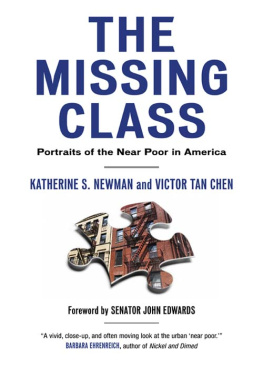This book explains a long-standing puzzle in American politics: why so many Americans support downwardly redistributive social welfare programs, when such support seems to fly in the face of standard conceptions of the American public as antigovernment, individualistic, and racially prejudiced. Bringing class attitudes into the investigation, Spencer Piston demonstrates through rigorous empirical analysis that sympathy for the poor and resentment of the rich explain American support for downwardly redistributive programs not only those that benefit the middle class, but also those that explicitly target the poor. The book captures an important and neglected component of citizen attitudes toward a host of major public policies and candidate evaluations. It also explains why government does so little to combat economic inequality; in key instances, political elites downplay class considerations, deactivating sympathy for the poor and resentment of the rich.
Spencer Piston is Assistant Professor of Political Science at Boston University. He studies the influence of attitudes toward racial and class groups on public opinion and political behavior.
University Printing House, Cambridge CB2 8BS, United Kingdom
One Liberty Plaza, 20th Floor, New York, NY 10006, USA
477 Williamstown Road, Port Melbourne, VIC 3207, Australia
314321, 3rd Floor, Plot 3, Splendor Forum, Jasola District Centre, New Delhi 110025, India
79 Anson Road, #0604/06, Singapore 079906
Cambridge University Press is part of the University of Cambridge.
It furthers the Universitys mission by disseminating knowledge in the pursuit of education, learning, and research at the highest international levels of excellence.
www.cambridge.org
Information on this title: www.cambridge.org/9781108426985
DOI: 10.1017/9781108676038
Spencer Piston 2018
This publication is in copyright. Subject to statutory exception and to the provisions of relevant collective licensing agreements, no reproduction of any part may take place without the written permission of Cambridge University Press.
First published 2018
Printed in the United States of America by Sheridan Books, Inc.
A catalogue record for this publication is available from the British Library.
Library of Congress Cataloging-in-Publication Data
Names: Piston, Spencer, 1979 author.
Title: Class attitudes in America : sympathy for the poor, resentment of the rich, and political implications / Spencer Piston, Boston University.
Description: Cambridge, United Kingdom ; New York, NY : Cambridge University Press, 2018. | Includes bibliographical references.
Identifiers: LCCN 2017048766| ISBN 9781108426985 (hardback) | ISBN 9781108447126 (paperback)
Subjects: LCSH: Income distribution Government policy United States. | Welfare state United States. | Social classes United States.
Classification: LCC HC110.I5 P57 2018 | DDC 305.50973dc23
LC record available at https://lccn.loc.gov/2017048766
ISBN 978-1-108-42698-5 Hardback
ISBN 978-1-108-44712-6 Paperback
Cambridge University Press has no responsibility for the persistence or accuracy of URLs for external or third-party internet websites referred to in this publication and does not guarantee that any content on such websites is, or will remain, accurate or appropriate.
To Rob Piston and Jane Piston, who taught me how to live and how to love
Contents
Figures
Tables
Acknowledgments
In a way, this book began when I was a community organizer for the Greater Lansing Association for Development and Empowerment (GLADE) in Lansing, Michigan. On a daily basis I worked with people who gladly paid the substantial costs of political action in order to build a more just world. They were willing to do so much in part because they saw the distribution of wealth in this country as profoundly unfair. In many cases their deepest sympathies were for the poor, and their greatest resentments were of the rich. Imagine my surprise when I began graduate school and was informed by social scientists that Americans do not care about class! Much of the evidence in this book can be viewed as corroboration of what the members of GLADE showed me long ago.
My greatest thanks go to the co-chairs of my dissertation committee: Vince Hutchings and Skip Lupia. Before I had even thought about what my dissertation might be about, I started a research paper on a separate topic and each of them met with me weekly (and sometimes more) over the winter semester of 2009. For the rest of my life I will be grateful to their contributions to that paper, to this book, and most of all to my development as a scholar. I would be remiss if I did not also mention the downside to having the two of them for advisors; because their mentorship was so exemplary, for years I was denied the opportunity to join in the graduate student ritual of complaining about faculty, which kept me from fully bonding with my peers.
Perhaps the most precious resource in graduate school is faculty time. It is only from faculty that graduate students can learn the art and science of conducting research, and there is no substitute for hours upon hours in their company, figuring out how they think. By this measure, Vinces generosity ranks above all other faculty I have known (or heard of). I have taken up a greater portion of his time than I ever expected I would, and every hour has been well spent. Vince also provided funding for much of my time in graduate school, allowing me time to conduct much of the research presented in this book. Finally, Vinces attention to detail, his professionalism, and above all his skepticism set an example that I hope to follow for the rest of my career. More than anything, I hope that as a professor I can be as kind and as generous to graduate students as he has been to me.
I first met Skip in his formal modeling course in 2008, and I was immediately impressed by the values that guide him as a researcher and a teacher: transparency, logic, rigor, and above all the production of knowledge of use to an audience. It has taken years to internalize these goals, but I have done so, and I am glad. Skip also has the ability, upon listening to a description of a research project, to select what is best about it and discard the rest. What he calls just repeating back to you what you told me has always in fact been a key contribution to my scholarship. Skip also invited me on many occasions to participate in the research process when I was a graduate student. Learning how he approaches the thorny problems associated with taking a research project from start to finish informed the process I went through that resulted in this book.
During my early stages in graduate school, I did not think I would have the chance to work with Don Kinder, as he was either chair of the department or on sabbatical while I was taking courses. Yet he took a chance on me, showing great patience in discussing my initial ramblings (that fortunately never made it into this book). It is no stretch to say that his scholarship has influenced my own more than anyone elses has. I believe that every publication of mine cites him more than it does any other author this book included. His research is of course widely lauded, and deservedly so; yet I wonder whether his talents as a mentor likewise receive the recognition they deserve. Don is especially gifted at detecting not only what is wrong with a project but also what could be right about it; at numerous presentations I have seen him give a single constructive comment that, if followed, would make a good project great.









